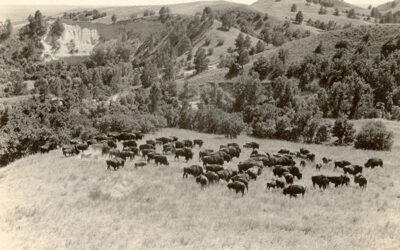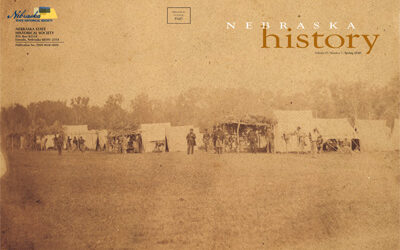In late 1877 a large crowd of enthusiastic spectators turned out for several Lincoln footraces that pitted a local favorite against outside opponents. Heavy bets were placed upon the outcomes. The Nebraska State Journal (Lincoln), on December 2 reported that the “long expected foot race between McCall of Canada and Matteson [Mathieson, Matthewson] of this city . . . was witnessed by over 1,000 people. The distance agreed upon was one hundred yards, and two parallel tracks of that length were measured off and prepared for the contest. Betting was rather lively, with little, if any odds, and the Lincoln men were eager to put their money on Matteson, with a like desire on the part of McCall’s friends.” The December 2 article reported Matteson the victor and added that an offer by “a man named Wright, living in Greentop, Missouri, offering to match a runner of that place by the name of Landaker [Landacker, Landackers], for a purse of $500 or $1,000 . . . will be accepted by Matteson tomorrow.”
On December 13 the Journal announced that the projected race between Matteson and Landaker was to take place that afternoon. “The city is thronged with strangers from almost every part of the state, and many from Illinois, Missouri, Iowa, and Kansas. . . . who take an interest in sports of this kind [and] are here for the purpose of witnessing the race.” Wright and other Landaker backers actively solicited wagers during final race arrangements made at a Lincoln saloon.
The result shocked Matteson’s backers. The December 14 Journal reported that Landaker won the seventy-five-yard race by the slimmest of margins. “About one-third of those who lost their money on Mathieson are now kicking like four year old mules, and say the race was a put up job.”
The complainers may have been right. A postscript to the race articles appeared in the Journal on January 3, 1878: “We are in receipt of a couple of letters from a business man in Dallas City, Ill. concerning Landaker the ‘Missouri (?) boy’ who beat Mathieson in the recent race. They say that Landaker is a citizen of that place” and that “this racing business is operated by a ring . . . When they find a man victorious at any point, where the people will back him, a race is fixed up, as in Lincoln, and Landaker is backed to beat him.”



